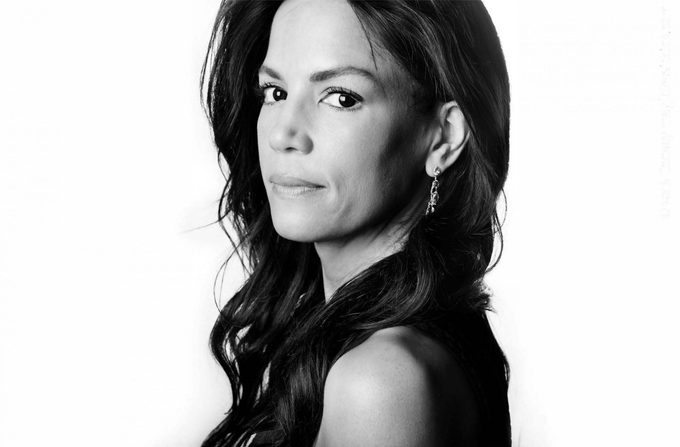
When you think of Veronica Webb, ‘90s high fashion may come to mind. A runway model on the covers of countless magazines, Veronica spent most of her 20’s jet-setting around the globe. In the fashion world, smoking was not just normal, it was encouraged, and Webb found herself smoking cigarettes regularly. When her mother, who was not a smoker, had a lung cancer scare, it made Veronica pause.
“The whole time I was smoking, I thought – ‘Is this going to be the cigarette that gives me lung cancer? If this happened to my mom, who didn’t even smoke, it could certainly happen to me,’” Webb recalled. “And, although smoking has been in my rear-view mirror, there’s still that possibility that it could catch up to me.”
As part of Merck’s Focus On Your Lungs campaign, which provides education and resources to help encourage other people at high risk for lung cancer to get an annual screening, Webb is sharing her own story and lung cancer screening experience.
Understanding Your Risks and Importance of Screening

Lung cancer screening is a test that may help save lives by finding lung cancer earlier and before it has spread. The test is recommended annually for people at high risk. While the greatest risk for lung cancer is a history of smoking, there are other factors. These include a family history of lung cancer or exposure to certain materials in the environment, such as secondhand smoke, radon gas, or asbestos and other materials that cause cancer like arsenic, chromium and nickel.
Unfortunately, in 2021, less than six percent of people in the U.S. who were at high risk got their lung cancer screening. Studies have shown that Black Americans, who have the highest diagnosis rate of advanced lung cancer compared to any other racial or ethnic group, are less likely to get screened or be aware of the need for screening.
“Today, for Black Americans, the probability of developing invasive lung cancer is 1 in 16 for men and 1 in 21 for women, with a lower survival rate than White Americans,” said Dr. Raymond Osarogiagbon, member of Lung Cancer Foundation of America’s Scientific Advisory Board. “Screening is an important step that may help increase rates of early detection as well as education and awareness for everyone at risk for lung cancer, including those in underserved communities like Black Americans.”
The U.S. Preventative Services Task Force (USPSTF) has recently updated the lung cancer screening guidelines, lowering the smoking pack-years and age requirement for yearly screenings, which helps make more people eligible for screening. Adults between the ages of 50 and 80 who currently smoke or quit within the past 15 years and have at least a 20 pack-year smoking history should be screened every year.
A pack-year is the number of packs of cigarettes a person smoked per day, multiplied by the number of years they have smoked.
“In my own experience, very often, preventive care is not on the radars of the African-American communities,” Webb said. “It is so important to empower people to take preventative action by increasing education and awareness of the resources that are available because even if it helps just one person, it is a step in the right direction.”
Veronica’s Screening Experience
Veronica recently underwent a lung cancer screening via low-dose computed tomography (low-dose CT or LDCT) scan to check if she has lung cancer. “It’s simple and quick, it’s not invasive and it’s easier than other exams I’ve had,” Webb said. “There’s no needles or pain, and there’s no prep.”
Webb is also familiar with some of the common feelings of anxiety and fear prior to screening.
“I understand that it’s scary to get these screenings,” she said. “But the point is that you need to catch anything that is wrong early. If you take the opportunity to find out about your health, then you have a fighting chance.”
Watch Veronica get screened for lung cancer below and visit FocusOnYourLungs.com to understand if you might be eligible.
